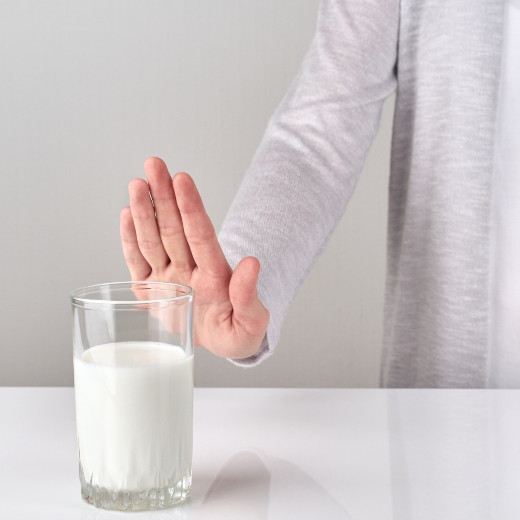Truth Revealed: Why You Should Stop Consuming Dairy Products
Jul 14th 2021
For decades, we have always been advised to consume milk and other dairy products every day. Aside from fruits and vegetables, dairy has always been recognized as a beneficial part of every person’s diet. But for years now, studies have also pointed out the other side of the coin: of how bad it is for the health, of how it affects the pH balance of a person, and of how miserable the lives of many cows in farm factories because of the increasing demands of the dairy industry.
While we have all been taught that dairy, particularly milk, is a good source of calcium, what most people didn’t know is that there are actually other healthier alternatives that they can turn to – like plant-derived milk that not only provides calcium but also has iron, vitamins, zinc, and protein (not to mention that these don’t contain any cholesterol too!).
Reasons Why It’s About Time to Stop Consuming Dairy Products
It’s about time we get past the dairy industry’s massive PR campaigns and learn the truths about consuming milk and other dairy products. Here are some of the reasons why you should start thinking twice about your dairy consumption.
1. Calcium intake from dairy sources does not lower the risks of bone fracture.
The thing is, we have always been made to believe that high calcium intake can make our bones stronger and lower the risks of having fractures. But recent findings have debunked these beliefs. A study was conducted to investigate the relationship between adult calcium intake and risks of fracture among men. Surprisingly, the data gathered throughout the course of the study does not support a strong protective effect of calcium intake from dairy sources against the forearm and hip fractures.1
2. Dairy products have a potential acne-inducing effect.
Diet plays a major role in many common dermatological conditions, like acne. In a study conducted among 47,355 women, a positive association with acne to milk intake has been hypothesized to be linked with the presence of hormones and bioactive molecules in the milk.2 In addition to that, ice cream consumption has also been identified as a factor in the pathophysiology of acne vulgaris experienced by many young adults.3
3. Milk and dairy products are considered mucus-producing food and can aggravate congestion.
You’ve probably heard it from your parents or from some concerned friends who have warned you about how milk can worsen your colds and increase mucus production. While studies and debates are still ongoing about this topic, the fact that this lasted for centuries and that some have actually have heard this information straight from their own doctors serves already as a reminder of one’s daily intake.4 The relationship between respiratory symptoms and milk consumption may have not been established yet, but people with bronchial asthma, chronic inflammatory disease of the lower respiratory tract are already advised not to eat mucus-producing food, such as dairy products.5
4. Milk and dairy products are acid-forming foods.
While it would depend on how the milk has been processed and how long it has been packaged or opened, by nature, milk is slightly acidic with a pH level of around 6.5 to 6.7.6 Note that when the body’s pH level falls out of the normal range, the body would try to compensate by removing the acid. This would force the lungs and kidneys to work more, which may lead to some serious complications.7 If left untreated, this may lead to the disruption of the metabolism which may result in muscle degradation and abnormal bone metabolism.8
Yes, the vitamins and nutrients found in dairy products are essential for the dietary needs of our bodies. However, you have to note that calcium, protein, and other minerals can also be sourced out from non-dairy soy milk, leafy green vegetables, and other calcium-rich foods.
Dairy alternatives can include soya, almonds, nuts, and vegetables like broccoli, Chinese cabbage, kale, and collard greens. In case you find these tedious to prepare, you can also try green powder superfoods such as pHresh Superblends™ and pHresh Greens®. These high alkaline food supplements are made from 16 raw ingredients that are carefully selected to help your body get the required daily serving of raw greens a day. Also, to conveniently and accurately measure how acidic or alkaline your body tissues are, you can try using pHresh strips™ - pH testing strips.
Start your journey to a healthier way of living. Skip the dairies and don’t forget your pHresh greens powder today! See more here.
Resources:
1 William Owusu, Walter C. Willett, Diane Feskanich, Alberto Ascherio, Donna Spiegelman, Graham A. Colditz. Calcium Intake and the Incidence of Forearm and Hip Fractures among Men. https://doi.org/10.1093/jn/127.9.1782
2 Clement A Adebamowo, Donna Spiegelman, F William Danby, A Lindsay Frazier, Walter C Willett, Michelle D Holmes. High school dietary dairy intake and teenage acne. DOI: 10.1016. PMID: 15692464
3 Noor Hasnani Ismail, Zahara Abdul Manaf, Noor Zalmy Azizan. High glycemic load diet, milk, and ice cream consumption are related to acne vulgaris in Malaysian young adults: a case-control study. DOI: 10.1186. PMID: 22898209
4 Christina Lee; Allen J. Dozor, MD. Do You Believe Milk Makes Mucus?. doi:10.1001
5 Brunello Wüthrich, Alexandra Schmid, Barbara Walther, Robert Sieber. Milk consumption does not lead to mucus production or the occurrence of asthma. DOI: 10.1080. PMID: 16373954
6 Anne Marie Helmenstine, Ph.D. Do You Know If Milk Is an Acid or a Base? thoughtco.com/milk-an-acid-or-a-base-607361#:~:text=Actually%2C%20milk%20has%20a%20pH,hydrogen%20donor%20or%20proton%20donor
7 Beth Sissons. Reviewed by Kevin Martinez, M.D. What to know about Acidosis. medicalnewstoday.com/articles/326975
8 Jeffrey A Kraut, Nicolaos E Madias. Metabolic acidosis: pathophysiology, diagnosis, and management. DOI: 10.1038. PMID: 20308999


